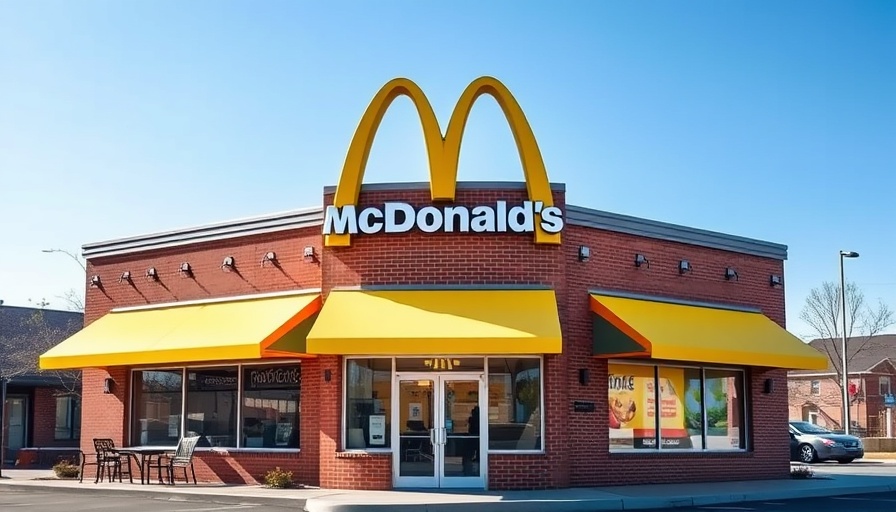
The Ice Cream Machine Saga: A Startup’s Journey
The dream of a Bay Area startup has recently culminated in a notable narrative revolving around one of the most beloved, yet notoriously unreliable, obsessions of fast-food lovers: the McDonald's ice cream machines. Known as Kytch, this Fremont-based company sought to revolutionize these fickle machines that have left countless customers frustrated and craving a simple cone or sundae. After five years of intense litigation and challenges, the legal disputes have come to an end, indicating a poignant lesson in innovation and corporate resilience.
What Sparked the Controversy?
Kytch emerged as the answer to a familiar fast-food complaint in America: ice cream machines are frequently out of service. The startup developed a device designed to help franchise owners identify and correct malfunctions quickly. However, this initiative faced resistance from McDonald's, which raised concerns about the safety and warranty implications of Kytch’s technology. This led to a bitter dispute that caught the attention of media outlets and consumers alike, turning a special interest story into a saga that highlighted the struggles of innovative startups against corporate giants.
The Legal Battle: A Deep Dive
The lawsuit, which has garnered attention across various news platforms, became a fascinating exposition of the conflict between large corporations and nimble startups. McDonald's argued that Kytch's product interfered with its proprietary systems, while Kytch criticized McDonald's for resisting solutions that would enhance operational efficiency and customer satisfaction. Over the years, as both companies faced off in court, the case became emblematic of larger discussions about innovation, competition, and the twin pressures of customer demands and corporate interests.
Reactions and Implications
As the legal proceedings wrapped up, reactions across social media and the restaurant industry demonstrated a range of responses—from critics blaming McDonald’s for stifling innovation to supporters of the fast-food giant praising it for protecting its brand integrity. This duality in opinion underscores the complex relationship between consumers, service providers, and technology in today’s market. Kytch's challenges reveal how innovative endeavors often face hurdles not only from financial giants, but also from regulatory standards and the need for safe customer experiences.
Future Predictions: What Lies Ahead?
With the end of this lawsuit, the question arises: what is next for Kytch and other startups aiming to innovate in the fast-food realm? Observers are keen on watching how Kytch continues to navigate the landscape. The outcome of this case may inspire future entrepreneurs to approach large entities with partnership models instead of adversarial positions. Additionally, it poses an opportunity for McDonald's to reconsider how it approaches innovation, possibly leading to collaborations that allow for improvements in customer satisfaction.
Key Takeaways for Parents and Consumers
For parents and casual diners who frequently indulge in fast-food offerings, this development is pivotal. It is not merely about ice cream machines; it encapsulates a broader trend where consumer needs challenge traditional corporate practices. Armed with this awareness, families can advocate for better services and products while supporting innovative start-ups that promise enhanced dining experiences. Ultimately, the end of this legal battle could lead to smoother operations in fast-food chains, translating to quicker service and restored access to ice cream treats.
Cultural Resonance and Humor: The Ice Cream Machine
At the heart of its popularity, the ice cream machine is more than just a functional item; it's a cultural centerpiece, often leading to jokes and comical anecdotes amongst diners. The infamous “broken ice cream machine” has become a meme in its own right, symbolizing the unexpected nature of service within the fast-food industry. This humor interweaves with consumer experiences, making the situation relatable, especially among families and young adults.
Call to Action: Stay Informed
As the dust settles, it is crucial for the public to stay informed about developments in the fast-food sector, especially those related to consumer rights and technological advancements. Engaging in dialogue about these topics fosters a stronger community understanding and advocacy for better practices.
 Add Row
Add Row  Add
Add 




 Add Row
Add Row  Add
Add 

Write A Comment